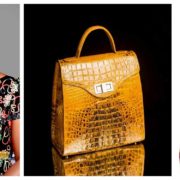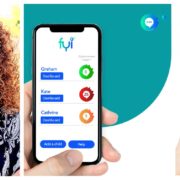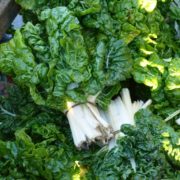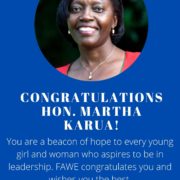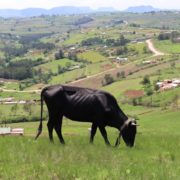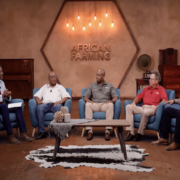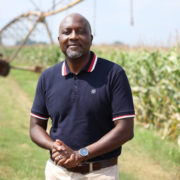by Lionesses of Africa Operations Department
We were recently watching a TED Talk (here) by the brilliant leader and Lioness, Temie Giwa-Tubosun of LifeBank where she wrote as an introduction “…while genius is evenly distributed, investment isn’t.” This fundamental truth (both the genius bit and sadly, the investment side as well) got us thinking.
What is the definition of Genius and is it linked in anyway to the access of finance?
Genius and leadership discussions across the globe and certainly within Business Schools centre around the Steve Jobs of this world, the Bill Gates, Jack Welch and more recently South Africa’s own Elon Musk. All incredible leaders, driven by self belief; 24/7 work ethic; fabulous out of this world ideas; one could argue, perhaps a tad lacking in empathy(!); but with an ability to deliver; and of course, luck (not that they would necessarily admit that part).
Sir Alan Sugar, now Baron Sugar (a UK self made businessman who founded Amstrad with £100 of Post Office savings before selling it for £125 Million) likes to joke about many of these icons of business: “I started by buying a box for one quid and selling it for two, I then bought 2 boxes and took in 4, I slowly built this up until I was selling 124 boxes for 248 pounds, then an Uncle of mine died and left me £50 Million…and that’s how I became a millionaire – hard work.” He has a point. Many of the examples of great leadership and genius that we look up to had luck on their sides and this comes in many guises – and although usually ‘male’ (and quite often ‘pale’) is the common denominator, they often had opportunities unavailable to mere mortals. In fairness, no matter what the opportunities, one still has to grab them, but still…
Of course we are not suggesting everyone who makes it has inherited £50 million from an Uncle, but there is no doubt that male run businesses have more than it’s fair share of finance. This is still borne out in the numbers from the VC world in the USA “Venture capital funding overall has surged in recent years, but the numbers haven’t leapt forward for female founders at the same pace. In 2021, companies founded solely by women garnered 2.3% of the total capital invested…” (here) and ditto for Europe: “…companies founded solely by women garnered just 1% of the total capital invested…[in 2021]” (here). The numbers from Q1 2022 are showing the same pattern – “US startups founded solely by women raised $1.47 billion of venture funding in the first three months of 2022…
That number represents a 34% slump in capital investment for female founders from the highs of Q4 2021. Overall US VC funding declined 26% during the same period…
On the deal count front, female founders recorded a 7% dip to 243 in Q1, roughly in line with US VC as a whole.”
This is interesting because it shows that whilst the deal count between men and women may move at the same rate (‘a 7% dip’), women lose more of the overall investment (34% slump vs 26% overall decline), and yet when the deal count increases, women do not do better either – at all stages the spread widens.
The numbers coming from out of the African world tell a similar story. As in the ‘West’, African businesswomen are simply not keeping pace with men. According to ‘Africa: The Big Deal’ although there is a serious tide of money flowing to Africa, in the whole of 2021 only 0.7% of funding was raised by female single founders, 0.2% by female only founding teams and 18% by a gender diverse team, leaving just over 81% for the ‘Testosterone Team’. The title of the chart ‘Crumbs Basically’ says it all (here).
While we are about it – 93% of the funding went to companies with a male CEO in 2021. In 2022 this rising tide of investment that brought in over $1.8 Billion Q1 across Africa, less than $28 million has gone to companies with a female CEO, that’s a paltry 1.5%!
So what can we do to somehow get noticed in Africa?
Fight to get into a foreign business school? – Great move. Across all deals a massive 56% of investment went to companies with a CEO who last studied abroad and (here’s the kicker)…they took in a disproportionate 73% of the total investment across the continent (see here). In Nigeria they took in 92% of the total funding! But how many can afford to fly to Harvard, let alone pay the fees? As they say ‘Money begets money’ and that starts with access to education.
For MBA’s you get what you pay for – “…grades matter less than the school’s brand and the networks formed. Close to 40% of Fortune 100 CEOs did an MBA, and 60% of them went to an elite school. If you have the option, Harvard is still the place to go. In 2012, 40 Fortune 500 CEOs had an MBA from the world’s best known business school.” (here) This is not just a club, but a stamp of bankability. How do women do in joining this club? The FT confirm (here) “Not enough women are attending. [Amongst] the leading business schools around the world…the number of women students has increased, but only from about 28 per cent to 34 per cent.” So no gender equity there yet either.
‘Money begets money’ also applies with loans – as the World Bank confirms, the average collateral required for a loan (note average) in Africa is over 200%! (here) – this being a collateral requirement on a continent that historically has favoured male ownership of assets…
Waiting for women led funds to raise the necessary capital to change the landscape is taking far too long, as they too suffer from the mental block that sends finance elsewhere. Of course there are some exciting beacons of light but sadly the total Assets they have Under Management (AUM) are paltry in comparison to the total.
Or perhaps we simply have to go back to the start, look at what is being taught in our business schools. The FT talks about: “…the minimal imprint women have so far left on the “official” theory and practice of management” and according to London Business School professor Nigel Nicholson “…the world of business organisations remains male [and white] in design, rationale and functioning” (here).
Harvard Business School professor Amy Edmondson, specialist in teams and organisational learning, says “I don’t think men have a monopoly on obsolete management mindsets, but they probably tend to hold them more often, and by that I mean the core idea that fear and command and control is the way you get things done.” (here) Sounds like a few leaders we mentioned at the start of this article!
From the Harvard Business Review: “So long as we continue to associate leadership with masculine features, we can expect female leaders to be evaluated more negatively even when their performance is higher than that of their male counterparts…” here.
So one begins to see why we are starting to believe there may be a connection between how the globe values success and ‘genius’ and how it rewards this through finance. Perhaps as the FT says: “…as Milton Friedman’s “shareholder value” doctrine is losing its destructive grip” (here) so we need to look to different icons, to study different values, to look again at the definition of ‘genius’.
Indeed just a quick look at the inspirational leaders within the Lionesses of Africa shows Temie’s ‘even distribution’ of genius amongst our >1.5 million membership of African Businesswomen.
Genius such as Temie herself, saving lives daily through delivering blood and oxygen in Nigeria and now Kenya; Christelle, bringing life giving clean water to those who have never previously afforded such; Chinwe creating housing for those at the lower end of the socio-economic pyramid in a sustainable and safe way; or Chioma turning waste into impact in Nigeria, and many, many others creating incredible impact through absolutely brilliant businesses…
If these are not ‘genius’, we have no idea what is!
While we continue to fight for a level playing field, we must change thinking through education. Of course this will take time, but to do otherwise risks only putting a plaster on the problem. Our fear is that until and unless Business Schools start to value ‘genius’ differently, this masculine style of leadership will not only continue to be held high, but the intellectual and financial flow will continue to stay outside of the reach of business women across the globe.
As we move away from ‘Milton Friedman’s “shareholder value” doctrine’, as we move away from ‘money’ and ‘power’ being a mark of success, let us move towards celebrating leaders with ‘impact’ as this will show the ‘even distribution’ of genius that has always been there, just unseen and ignored in our rush to worship at the feet of ‘the greats’. Who knows, maybe one day Banks’ Credit and Risk Departments might just benchmark business leaders not against Steve Jobs, but Temie, Christelle, Chinwe or Chioma – surely it’s worth a try!
The time has come for all of us to
Redefine Genius!
Stay Safe.



